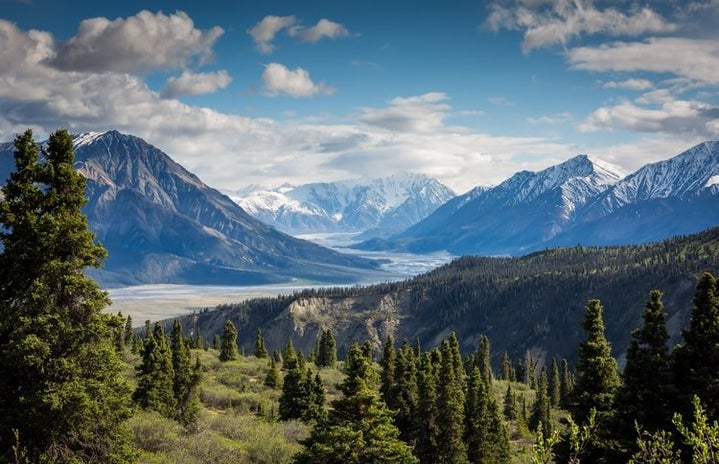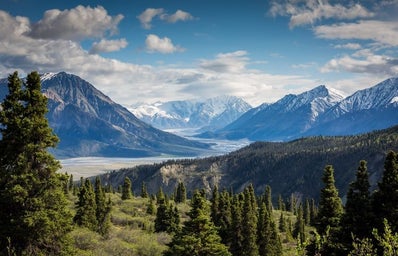So, you want to save the Earth? Or you want something to watch between study sessions? Either way, you’re in the right place. The shows I’m recommending are not of the mind-numbing sitcom variety. They aren’t all feel-good and inspiring. They should make you uncomfortable. While you’re stressing about exam season, climate change remains present. I will list the documentaries in order of increasing provocation. We’ll start you off nice and wholesome, and slowly get to the roots of today’s messy environmental crises. If watching TV for a few hours is the first step to saving the planet, then count me in.
1. The Biggest Little Farm
What it’s about:
This wholesome documentary follows a couple and their dog as they transform their typical office job lives in Los Angeles into a huge undertaking in biodynamic farming. The preview makes this documentary look cute AF with montages of newborn ducks and farm dogs – but don’t be fooled. Everyone thought this couple was insane for sinking all of their money and effort into revamping this old dead land. They went against the disgustingly normalized method of monoculture farming and proved that with time and dedication, simplicity can be found in biodiversity.
What you can do:
Shop produce from small local farmers that treat their products with respect. This spring/summer, go to your local farmers market and invest in fresh organic produce. Meet new people, make new connections.
Similar shows: Kiss the Ground, Rotten
2. The Minimalists: Less is Now
What it’s about:
This documentary follows the journeys of two white-men-turned-minimalists. I know what you might be thinking – why should I listen to two privileged guys lecture me about my shopping habits? But trust me, that’s not what this show is about. It will open your eyes to the power of LESS. It underscores just how much unnecessary sh*t we collect over our lifetimes, and how the “consumer mindset” is not sustainable. One of the shocking statistics in this documentary reveals that there are 300,000 items in the average American home. It is dizzying to consider how better off our planet would be if consumerism wasn’t poisoning it one new random tchotchke at a time. The less stuff we accumulate, the less chance it will end up in our oceans or stuck in a tree.
What you can do:
Let that sh*t go. Marie Kondo your life. If you need a place to start, try the 30-day Minimalism Game. If you’re wondering what to do with all of the sh*t you’re getting rid of, consider donating or recycling (trash is the last resort). Donate clothes to a thrift store, books to a library, and furniture to Habitat for Humanity, so that these items can live on to be used by people who need them.
Similar shows: Minimalism, Tidying Up With Marie Kondo.
3. David Attenborough: A Life On Our Planet
What it’s about:
You may only know Sir David Attenborough by the familiar sound of his sage “old British man” voice which has narrated nature programs such as Our Planet or Planet Earth. But this man is more than a voice! He is a 94 year-old naturalist who has travelled the world, witnessing how humans have impacted our once beautiful planet. Watch the increase in world population along with the amount of carbon in the atmosphere and see the percentage of remaining wilderness on our planet fade and dwindle. Let it alarm you. Let it be a guide on how we can break the cycle of damage that generations before us have done.
What you can do:
While this film depicts loss, it also offers hope for a future. Attenborough stresses the importance of expressing gratitude towards the natural world. There are many ways you can practice being thankful for our Earth, starting with exploring all of the beautiful places around your neighborhood! Check out your local conservation areas, and leave them better than you found them!
Similar shows: Bill Nye: Science Guy, Mission Blue
4. Seaspiracy
What it’s about:
Now, this is by far the most provocative, controversial documentary on my list. This film reveals the horrendous impacts of commercial fishing on the planet’s oceans. Its drama is supposed to shock us and show us how dire the situation really is. However, the film has been accused of being misleading and inaccurate on several accounts, which you can read about further here. While this documentary does raise controversy (which is to be expected when regarding such raw topics), it is worth watching with a grain of salt. The issue of commercial fishing is very much real, and awareness surrounding this problem is important.
What you can do:
The drama of this film matches its suggested call to action: stop eating fish. This is a pretty drastic change that may not be tangible for everyone, but there are other ways to help. Sign petitions, raise awareness in your own community. Meet a few friends at your local beach and clean it up by (safely) picking up and properly disposing plastic waste.
Similar shows: Chasing Coral, A Plastic Ocean, Brave Blue World


